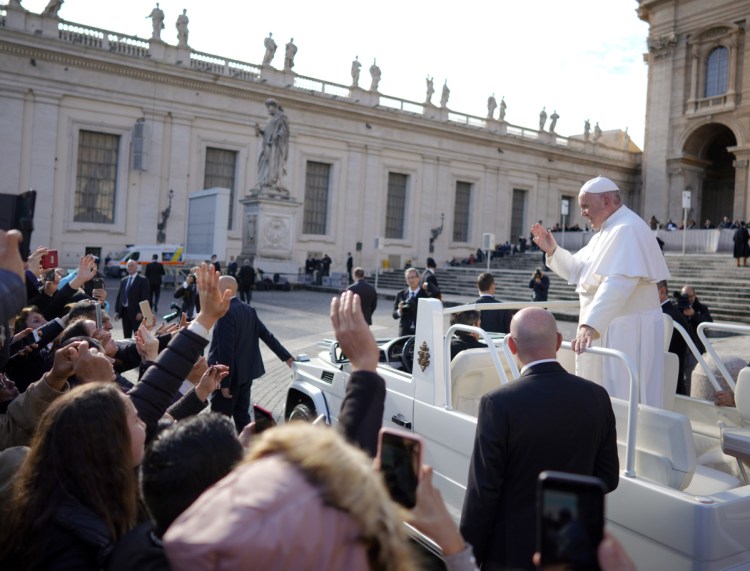VATICAN CITY — Pope Francis named the Vatican’s top sex abuse investigator and a close U.S. ally to an organizing committee for a February abuse prevention summit that has become a high-stakes credibility test following a new eruption of the scandal in the U.S. and elsewhere this year.
Abuse survivors and women working at the Vatican will also contribute to the preparatory committee. Notably absent from the lineup announced Friday was Boston Cardinal Sean O’Malley, who heads the pope’s sex abuse advisory commission, though one of his members, the Rev. Hans Zollner, is the point-person for the group.
In addition to Zollner, the committee includes Maltese Archbishop Charles Scicluna, for a decade the Vatican’s sex crimes prosecutor, Francis appointee Chicago Cardinal Blase Cupich and Indian Cardinal Oswald Gracias, a member of Francis’ key cardinal adviser group.
Francis summoned leaders of the world’s bishops’ conferences to the Vatican Feb. 21-24 after the abuse scandal erupted in his native South America and again in the U.S. and he botched the case of a Chilean bishop implicated in cover-up.
The stakes of the meeting grew exponentially after the Vatican told U.S. bishops earlier this month not to vote on proposed new measures to investigate sexual misconduct or cover-up within their ranks.
The Vatican still hasn’t explained why it blocked the vote on a U.S. code of conduct for bishops and a lay-led board to investigate them, though the proposals were only given to the Vatican at the last minute and were said to contain legal problems. The head of the U.S. bishops conference, Cardinal Daniel DiNardo, said the Holy See wanted to delay any vote until after the February global summit.
However, it is unlikely that such a diverse group of churchmen, some representing national churches that continue to deny or downplay the scandal, will over the course of four days come up with any universal proposals that come close to the accountability norms that U.S. bishops were seeking.
Cupich has said he was disappointed by the Vatican’s decision, but at the time of the U.S. bishops’ meeting, he proposed they go ahead and debate the measures and even came up with a revised proposal himself.
His inclusion as a member of the Vatican organizing committee is significant, since he is not himself the head of a bishops’ conference – as are Scicluna and Gracias – and would otherwise have no reason to attend the February summit. That Francis chose him over DiNardo is perhaps understood by the obvious tensions between DiNardo and the Vatican over the rejected U.S. accountability proposals and DiNardo’s public call this summer for a Vatican investigation into the U.S. scandal, which Rome refused.
Cupich, on the other hand, is far more of a defender of the embattled pope, whose popularity in the U.S. has tumbled over his uneven handling of the abuse crisis.
“Pope Francis is calling for radical reform in the life of the church, for he understands that this crisis is about the abuse of power and a culture of protection and privilege, which have created a climate of secrecy, without accountability for misdeeds,” Cupich wrote in a blog post Thursday. “All of that has to end.”
O’Malley, for his part, said he would be participating in the February meeting as the head of the pope’s Pontifical Commission for the Protection of Minors, which proposed the summit in the first place. In a statement, O’Malley said the meeting will help the church develop a “clear path forward” of transparency, including pushing for the release of names of credibly accused priests in dioceses and religious orders.
Zollner, who heads a safeguarding institute of study at the Pontifical Gregorian University in Rome, acknowledged that the expectations were high going into the meeting.
“And it’s understandable that they are high, given the gravity of the scandal that has shocked and hurt so many people, believers and not, in so many countries,” he told Vatican Media.
Vatican spokesman Greg Burke said Francis’ decision to host the meeting showed he considered protection of minors a “fundamental priority for the church.”
Send questions/comments to the editors.


